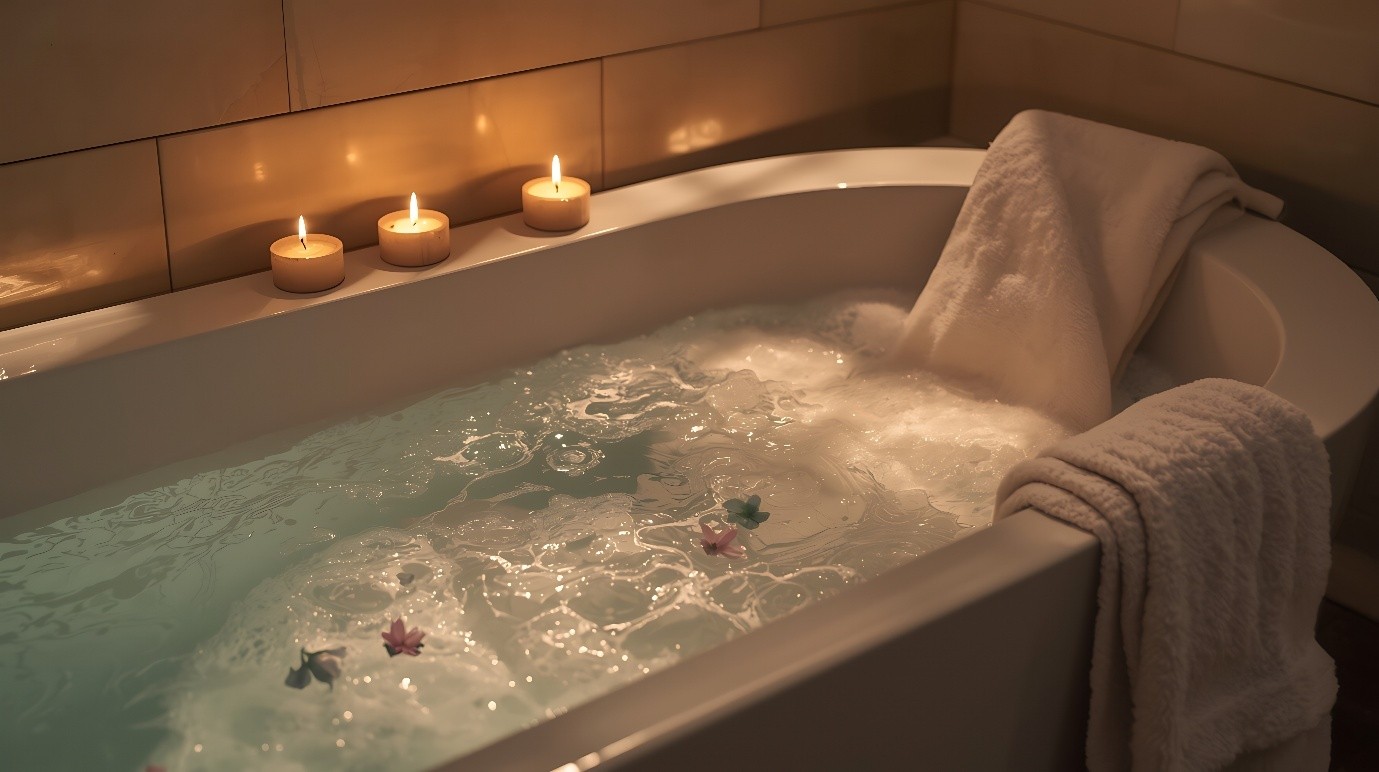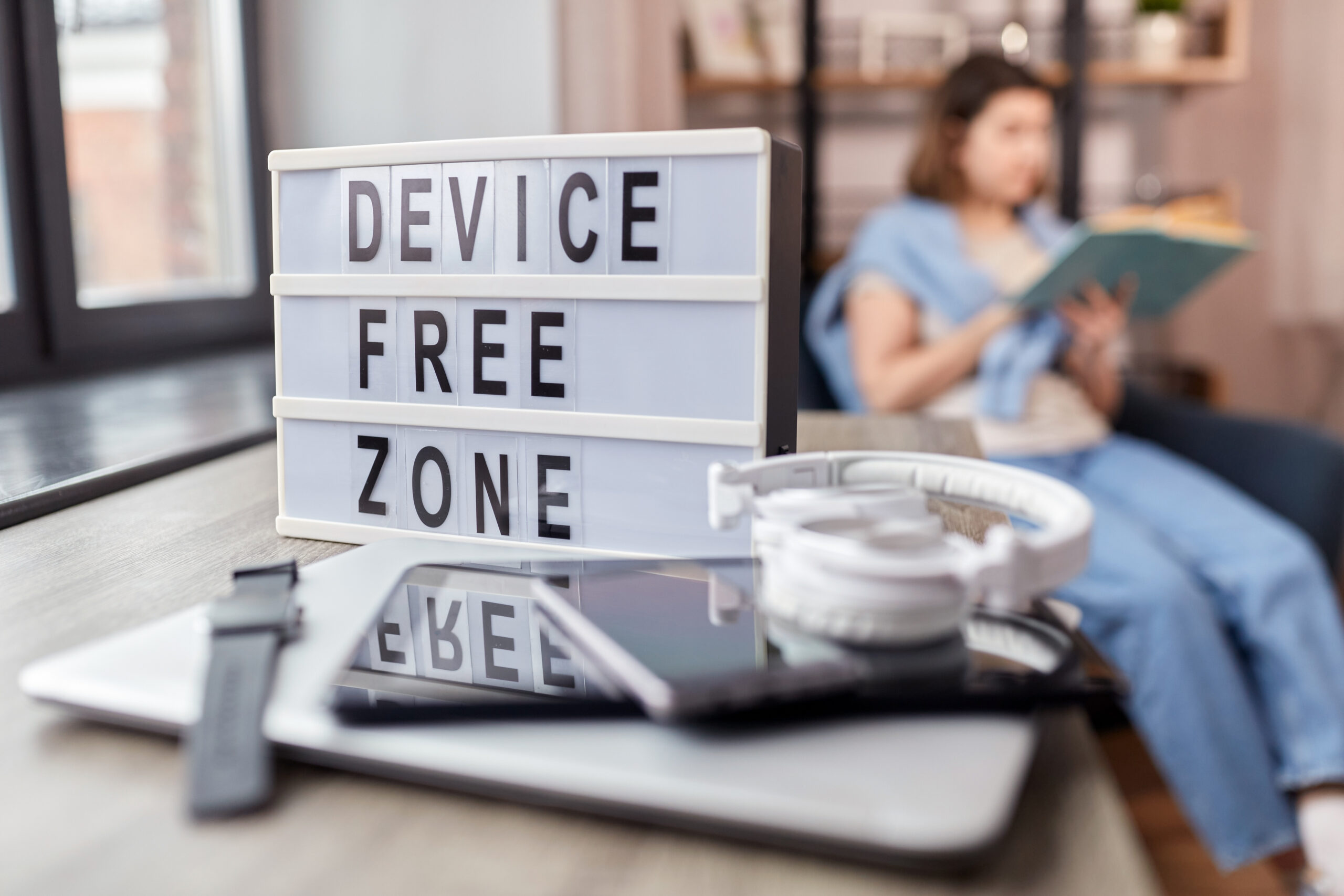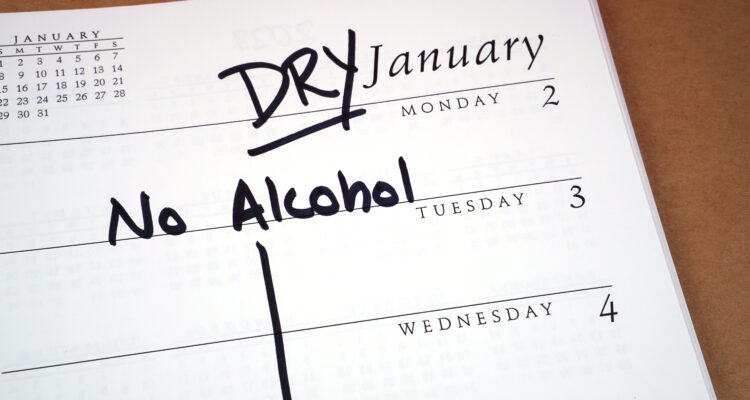In our hyper-connected world, it can seem like you’re never away from a screen.
UK adults now spend an average of 7 hours and 27 minutes per day on their phones, TVs, laptops, and tablets. That’s nearly a third of the day spent on screens! [1]
A recent survey found 38% of UK consumers want a digital detox due to worries about excessive screen time and its impact on their wellbeing. [2] But what could a digital detox do for you?
Hour What Are the Benefits of a Digital Detox?
Why should you do a digital detox? When your whole life is on your phone and your work is on your laptop, it may seem hard to step away. However, there are many benefits to giving yourself a break from screens:
- Reduced stress and anxiety: Being constantly available, dinging notifications and digital multitasking can be overwhelming and stressful. Disconnecting or reducing screen time gives your brain a chance to relax and reset. [3]
- Better Social Bonds: Being less distracted by your phone or screen in face-to-face interactions strengthens social bonds. When devices are down, attention shifts to the people around us, and lets us engage with them meaningfully. [4]
- Better Sleep: Screen time at night, especially blue light screens (anything LED) and intense content, can delay sleep onset and reduce sleep quality. Limiting screen use before bed can help you fall asleep more easily and have better quality sleep when you do. [5]
Research shows that 23.7% of people feel less stress and anxiety after a digital detox, and 20.3% report better social interactions [6] .
Whether you’re overwhelmed by notifications or want to feel more present, these digital detox ideas will help you reconnect. Here are 10 Easy Ways to Do a Digital Detox
1. Give Yourself A Tech-Free Hour In the Morning
Start your day without screens for the first hour. Instead, try stretching, yoga, writing a journal or meditating. This sets a calm tone for your day and reduces cortisol spikes from digital stimulation.

2. Take a Nature Walk
Leave your phone behind and take a walk in nature. Whether it’s a forest trail, a local park, or even your own garden, spending time outdoors can offer many health benefits and reduce your digital fatigue. Try and notice the smells, sounds and focus on the beauty of nature. Check out our blog: The Healing Powers of Green for Your Mental Health for more reasons to head outside!
3. Get a Book You Can’t Put Down
Without your phone it can be hard to know what to do with yourself before bed. However, finding a book you really enjoy, will leave you looking forward to picking it up at bed time. If you want eco points too, get a book from the local library, a charity shop or a second hand website like World of Books. Reading a physical book removes the LED blue lights in devices that are known to disturb sleep.

4. Find a Non-Digital Hobby
Rediscover offline hobbies like painting, baking, gardening or an outside sport. These activities use your natural creativity and give you a sense of accomplishment without a screen. These can be solo or you can even get friends or family involved too. This gives you the community that staring at your phone can take away.
5. Make Meal Times Screen-Free
Make meals a screen-free zone. Focus on the flavours, textures of your food and think about what you’re eating. If you’re with family, you can chat about your days without distractions and foster those deeper connections humans need.
6. Challenge Yourself to a Weekend Unplug
Pick one day each weekend to go completely offline. Plan outdoor adventures, visit a local market, or spend time with loved ones – no phones allowed. You can certainly check them for emergencies, but leaving your phone in the car on a walk or in the drawer for a board game can make all the difference to great times.
7. Clean Out Your Digital Clutter
Look at your apps and notifications. Turn off notifications from any apps that you don’t need to know about urgently. Remove anything that doesn’t serve your wellbeing, like unfollowing accounts on social media that you know cause you stress. A cleaner digital space can reduce overwhelm and improve your focus.
8. Get a Digital Camera
People’s phones are now their cameras, and without it, you can feel like you’re missing out on documenting memories. Get yourself a digital camera, so you can take pictures without the news, texts and emails interrupting your days out.

9. Swap Scrolling for Journaling
Swap your evening doom scroll for journaling. If you feel like writing a Facebook status or long text to vent, write it down in a diary or notebook. You could also try:
- Gratitude journaling – Write 3 things you’re grateful for each day.
- Mind dump – Set a timer for 10 minutes and list all your thoughts, worries and tasks crowding your mind.
- Goal setting – Write down your short and long-term goals, then break down how you can achieve them.
- Be Creative – Use your journal to doodle, sketch or write down a short story or poem.
Writing by hand slows you down. Unlike phone scrolling, studies show journaling can reduce anxiety and improve immune response. [7]
10. Set Screen Time Goals
Most smart phones will tell you how long you’ve spent on your phone and on what apps. Take your screentime and make a commitment to reduce it by an hour per week. This seems small, but even this can reduce your stress significantly. Try to beat your new record each week and before you know it, you’ll have reduced your screentime significantly. Make yourself a wall chart to tick off and set non digital rewards, it may feel childish but it’s another way to record your achievements on paper and incentivise yourself!

A digital detox doesn’t mean abandoning technology; it’s about reclaiming control and using it intentionally. Start small, stay consistent, and notice how your mind and body respond.
If you enjoyed reading this – check out our blog Stress Management for Healthier Life | Vavista Car Insurance.
Get a car insurance quote from Vavista today!



